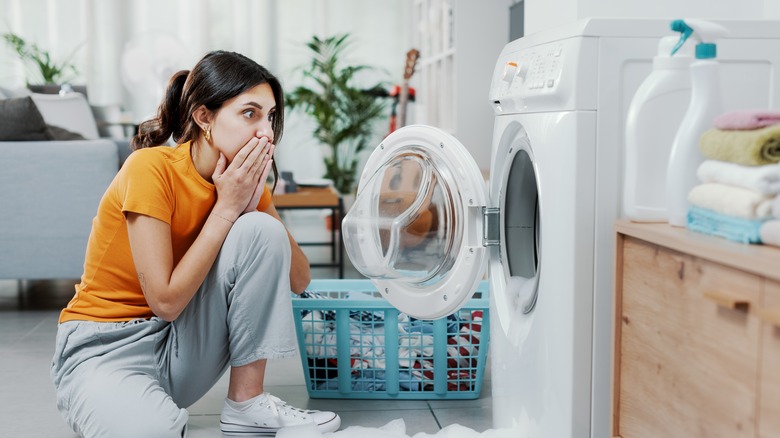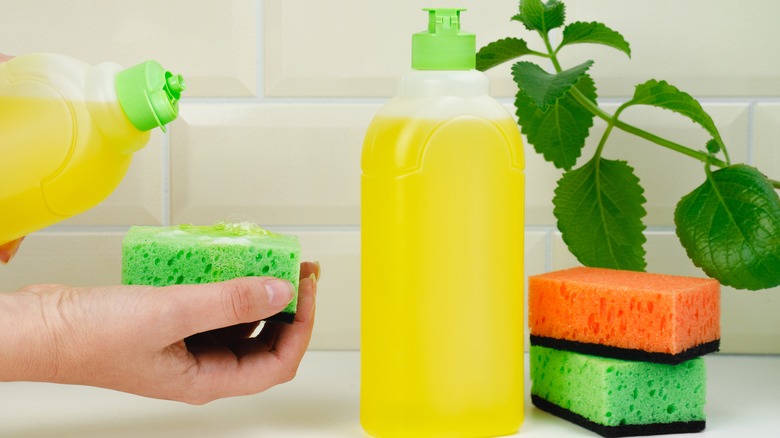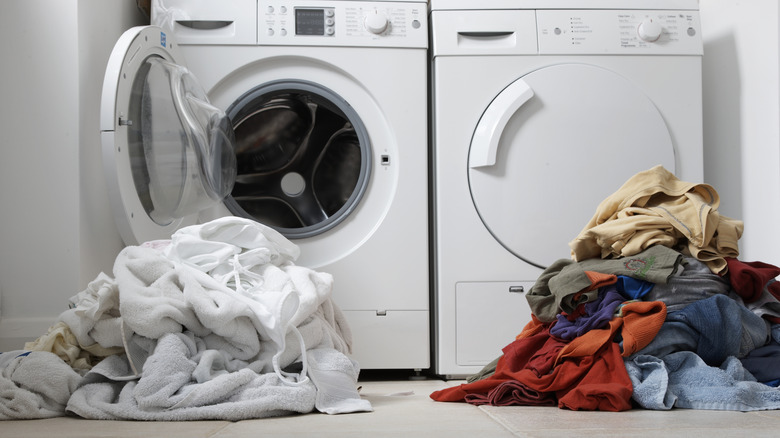High Efficiency Vs Traditional Washing Machines: What's The Difference?
HE or high-efficiency washing machines and traditional washing machines offer two different cleaning experiences, each with its own set of pros and cons. HE machines are designed to be more eco-friendly and use less energy and water than traditional machines in order to complete a cycle.
Aside from reduced consumption, there is also a significant difference in design. High-efficiency washing machines do not use an agitator, which is the key mechanism in a traditional top-loading machine. The agitator creates frothy bubbles in the detergent that helps clean the clothes more effectively. Unfortunately, this mechanism is also quite hard on clothes, and one of the reasons traditional machines are less effective at preserving the color and shape of items. When it comes to choosing between these two types of washing machines, it is important to consider the types of clothing being washed, the size of your residence, and what kind of energy bills are acceptable to you.
Detergents and costs
When using an energy-efficient washer, there are also a couple of differences in terms of the protocol. It is important to have the correct detergent when using a HE washer, as this detergent is specifically designed to produce fewer suds, which reduces the amount of rinsing needed. On the other hand, using a traditional detergent can cause mechanical problems and affect the quality of the wash. Additionally, it is important to know that this type of washer may actually require multiple rinses in order to get the optimal cleaning effect. But this gentler approach is ultimately better for your clothing.
In terms of cost, washing machines with energy-conserving features do run on the more expensive side. A high-efficiency washer will generally be a few hundred dollars more than its traditional counterpart. However, they will save you money in other ways. Typically, this kind of unit will use less than half the water of a traditional washer, along with a third of the electricity, which can equate to a few hundred dollars per year on electric and water costs
Noise and maintenance
Users should also be aware that high-efficiency washing machines require a bit more attention when it comes to preparation. Clothes must be correctly loaded into this kind of washer, to avoid them getting tangled together. This is unlike a traditional washer, where everything can be thrown at once with no second thought.
Two other key differences to consider are noise factor and maintenance. Due to their spin speed, they can be quite loud, which is something to consider if you prefer to keep quiet throughout the day. Because these sorts of units do not always eliminate all water upon the completion of a cycle, one other maintenance issue to consider is the prevention of mold. Traditional units drain all water and debris at the completion of every cycle, but energy-efficient options do not. Therefore, it's advised to air out the washing machine at the end of each cycle to prevent this from happening.


